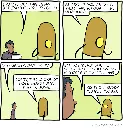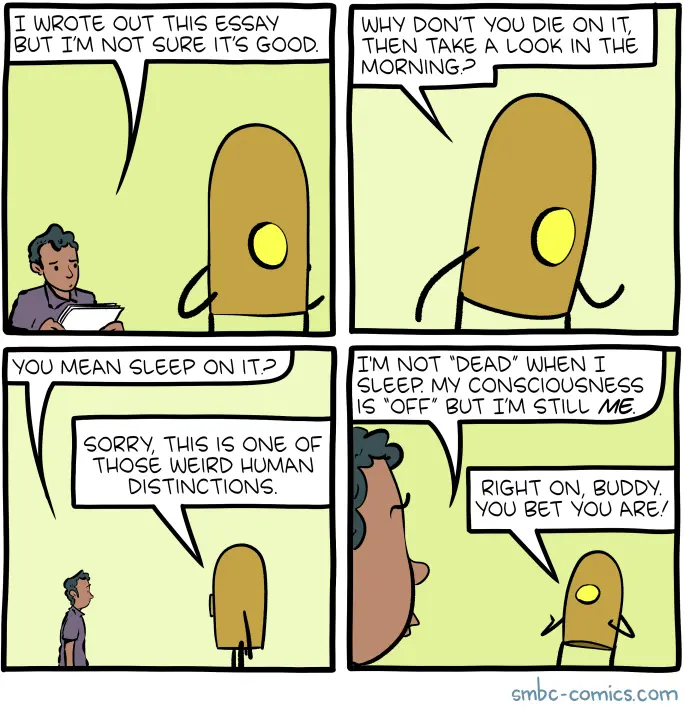Does Consciousness Disappear in Dreamless Sleep?
Does Consciousness Disappear in Dreamless Sleep?


Art by smbc-comics
Consciousness is often said to disappear in deep, dreamless sleep. We argue that this assumption is oversimplified. Unless dreamless sleep is defined as unconscious from the outset there are good empirical and theoretical reasons for saying that a range of different types of sleep experience, some of which are distinct from dreaming, can occur in all stages of sleep.
Pubmed Articles
Does Consciousness Disappear in Dreamless Sleep?
Sciencealert Article We Were Wrong About Consciousness Disappearing in Dreamless Sleep, Say Scientists